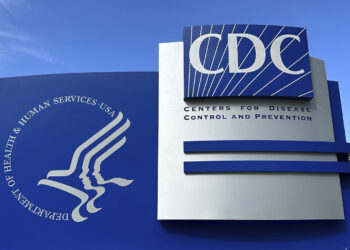Hyperinsulinemia appears to have an early association with common causes of abnormal uterine bleeding (AUB), particularly in women with obesity, a preliminary study in Menopause found. Although preliminary, the study data suggested the opportunity for future research on potential relationships between cardiovascular disease risk factors and gynecologic disease.
“Many studies and organizational bodies have examined and asserted a relationship between polycystic ovarian syndrome (PCOS) and elevated insulin levels,” wrote investigators led by Andrea C. Salcedo, DO, MPH, of the Department of Obstetrics and Gynecology at Loma Linda University in Loma Linda, California. They noted that AUB is the most common reason for benign gynecologic consultation in the United States.

“After over 15 years of clinical practice, I started realizing there were several patterns in women who presented with irregular or heavy periods. Many were self-referred or sent by their primary care providers to see me to evaluate for female hormone problems,” Salcedo told Medscape Medical News. “The majority were not in perimenopause, but they had similar risk factors for cardiovascular disease, such as obesity, hypertension, and migraine headaches.”
Salcedo began to wonder whether healthcare providers are recognizing abnormal periods in reproductive age as a cardiovascular risk and using them to educate women on prevention rather than solely treating them medically or surgically.
“I believe that the theory of the uterus as an ‘end organ’ that receives inflammation in the same way as the heart and kidneys do in cardiovascular disease helps explain to the patient the reasons for heavy or irregular periods.” The study findings came as no surprise to her: “They confirmed the patterns I was seeing clinically.”
Hyperinsulinemia is associated with smooth blood vessel inflammation in the peripheral circulation. “What is often under-recognized is that the uterus is made of these same blood vessels.” When the uterus is on the receiving end of inflammation, the blood vessels are damaged and do not function appropriately. The result can be uterine fibroids or heavy periods. The gynecologic expression of this inflammation can vary from person to person, she added.
The Study
This exploratory cross-sectional analysis of the association between hyperinsulinemia and biomarkers of metabolic syndrome in reproductive-aged women with AUB was designed to motivate future hypothesis-driven research.
It was conducted from June 2019 to August 2023 at a single institution’s outpatient gynecology clinics. A total of 205 premenopausal women aged 18-54 years were enrolled, including 116 with AUB and 89 control individuals with normal menstrual cycles. Approximately 40% in each group were identified as Hispanic.
Participants underwent assessment for fasting insulin and additional markers of metabolic syndrome, including body mass index (BMI), high-density lipoprotein (HDL), low-density lipoprotein (LDL), and waist-to-hip ratio.
Among the findings:
• Hyperinsulinemia, the main effect of interest, was a significant predictor of AUB, affecting 44.0% of the AUB group vs 33.7% of the control group, with an odds ratio of 3.0 (95% CI, 1.372-6.832; P = .0085).
• Hypertension, LDL, HDL, smoking, migraines, and polyps or fibroids were all significantly associated with AUB and identified as confounders. Chronic hypertension was identified in 26% of the AUB group vs 12% of the control group.
• Interestingly, including BMI in the model diminished the significance of hyperinsulinemia, suggesting overlapping or mediating pathways, the authors said.
• Among metabolic markers, LDL levels were similar between groups, while HDL levels were lower in women with AUB (54.0 vs 60.0 mg/dL).
• There was a nonsignificant intergroup difference in triglycerides (82.0 vs 73.5 mg/dL) and total cholesterol levels (169.0 vs 172.5 mg/dL).
• Migraines were more prevalent in the AUB group (31.0% vs 11.2%), as were polyps or fibroids (45.7% vs 9.6%).
Commenting on the study but not involved in it, Maureen Whelihan, MD, a gynecologist at the Center for Sexual Health and Education and Elite GYN Care of the Palm Beaches in Greenacres, Florida, called the study an interesting one, “suggesting that before we see the effects of PCOS, a diagnosis of hyperinsulinemia can be made and managed and that hyperinsulinemia has a direct effect on microinflammatory injury to the uterus.”

In her practice, women with insulin resistance and PCOS have major infertility issues. “About 85% are obese and have lipid disorders. While this study indicates we can make a diagnosis earlier by evaluating fasting insulin, the question is, ‘then what?’” she said.
The ultimate remedy is diet and lifestyle modification. “The minute patients understand they must eliminate starch and sugar to lower insulin levels and move their body a little, we lose them,” she said. “They want a quick fix and nothing that requires them to make difficult decisions and drastic modifications. This is the hard part! We can teach them the pathophysiology all day, but they have to commit to a permanent change in the way they approach diet and exercise.”
While the study findings are exploratory and preliminary, Salcedo said, they suggest that abnormal periods may have predictive value. “In many cases, elevated fasting insulin levels, above 10 µU/mL, could be an early sign of cardiovascular and diabetes disease risk.”
In this study, elevated insulin levels were associated with AUB, particularly among those with obesity. “Therefore, when a patient sees her healthcare provider for irregular periods, it could be an excellent opportunity to discuss the known association of menstrual problems with [cardiovascular] risk factors.”
Larger, longitudinal studies are needed, however, to confirm the causal mechanisms, Salcedo said.
This study was supported by Loma Linda University’s Department of Gynecology and Obstetrics Research Funds. The authors had no competing interests to disclose. Whelihan disclosed no competing interests relevant to her comments.
Source link : https://www.medscape.com/viewarticle/hyperinsulinemia-linked-abnormal-uterine-bleeding-2025a1000f9t?src=rss
Author :
Publish date : 2025-06-06 07:15:00
Copyright for syndicated content belongs to the linked Source.












